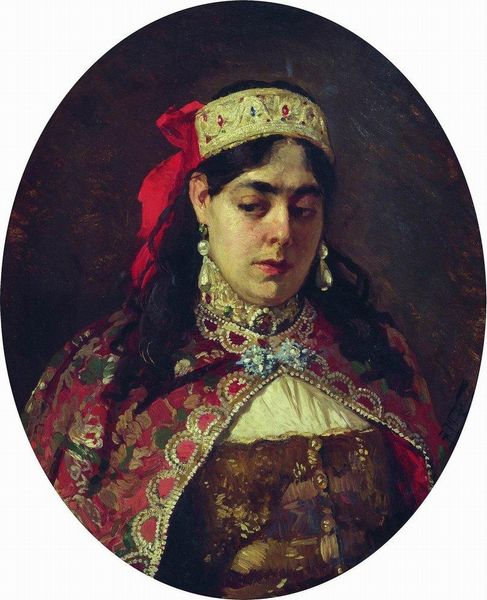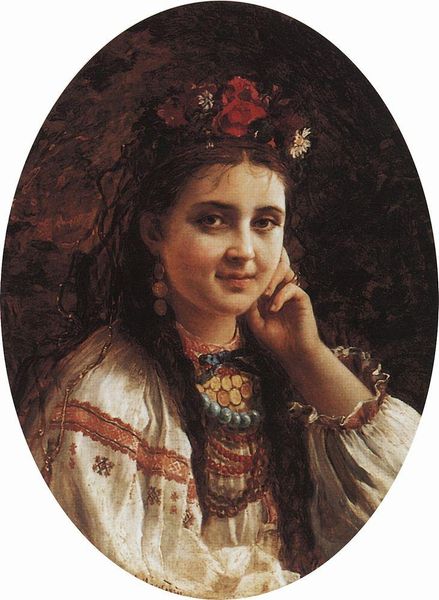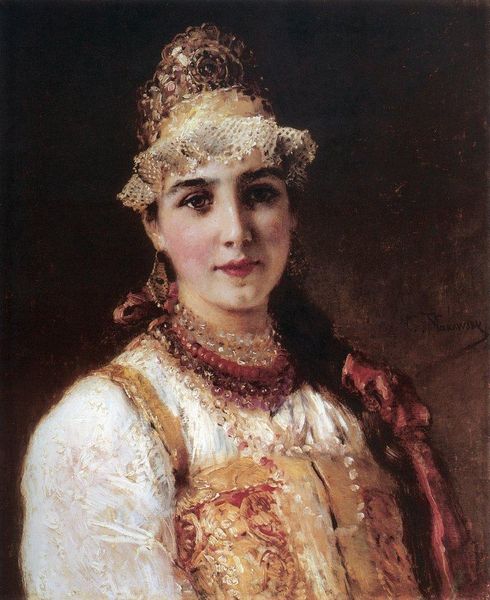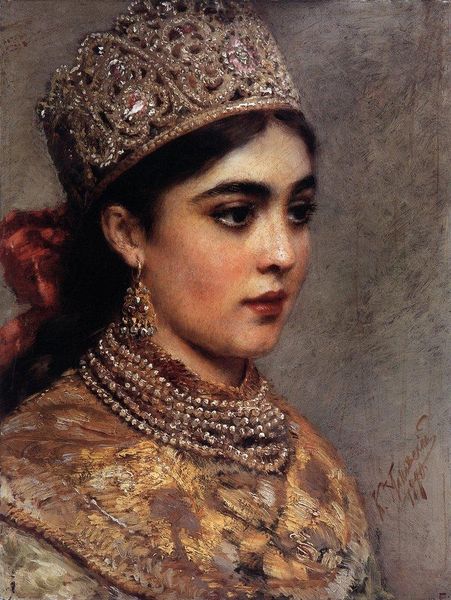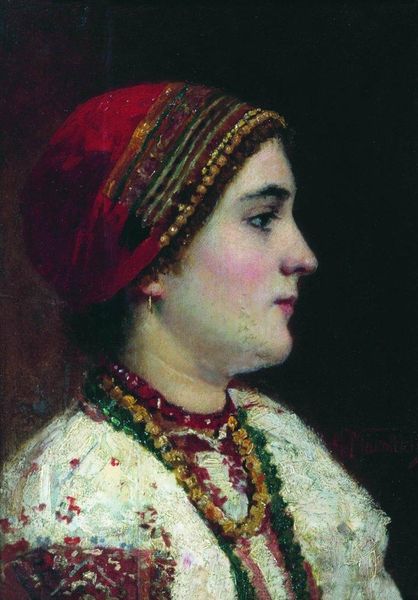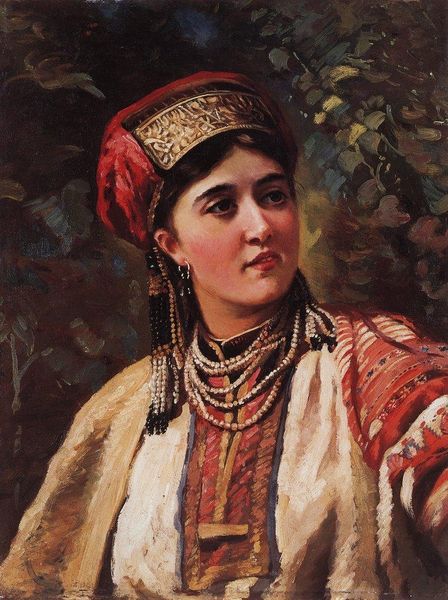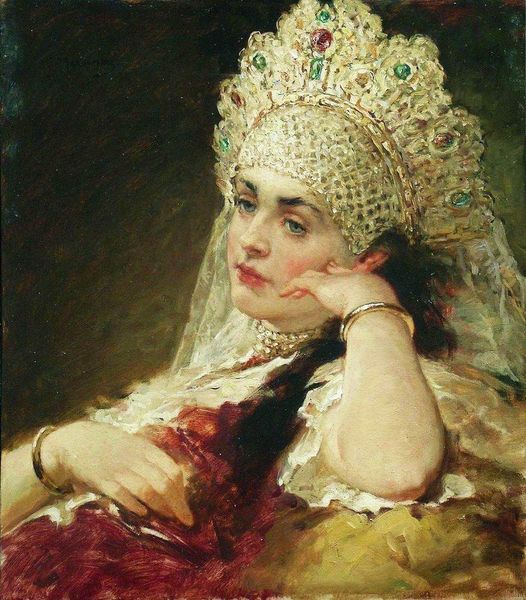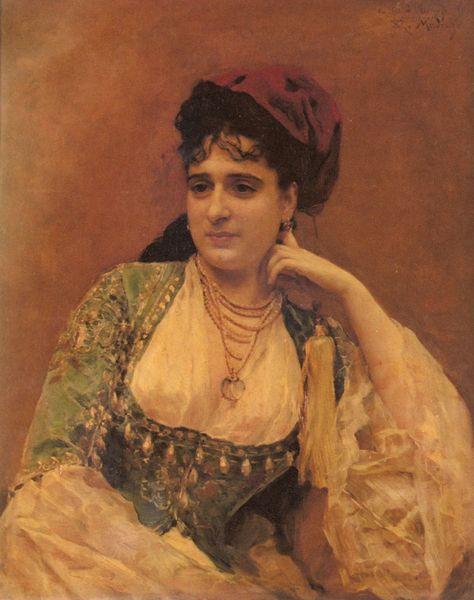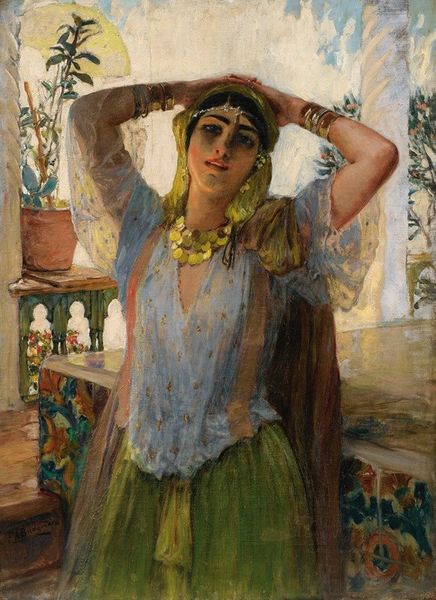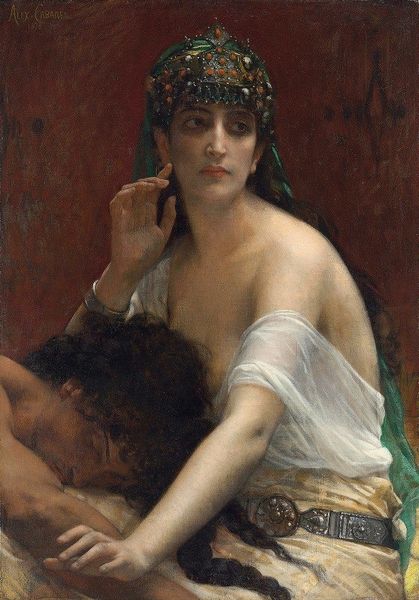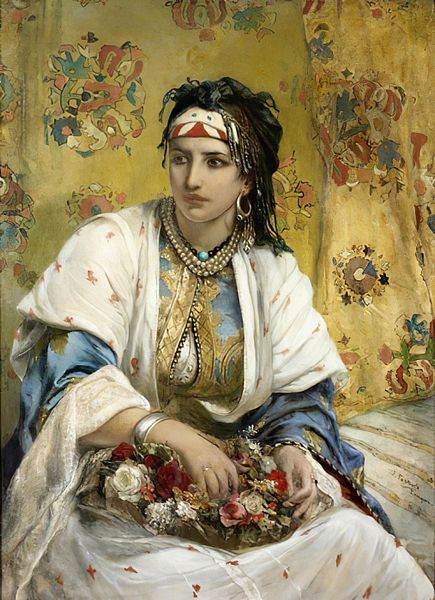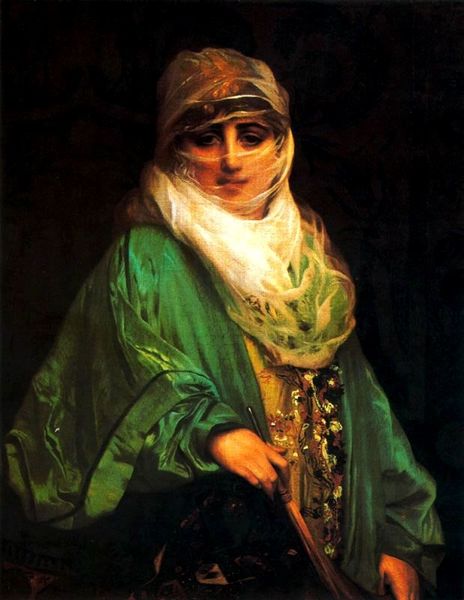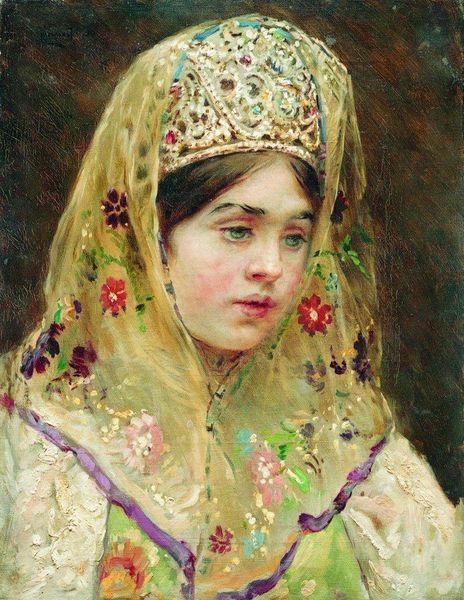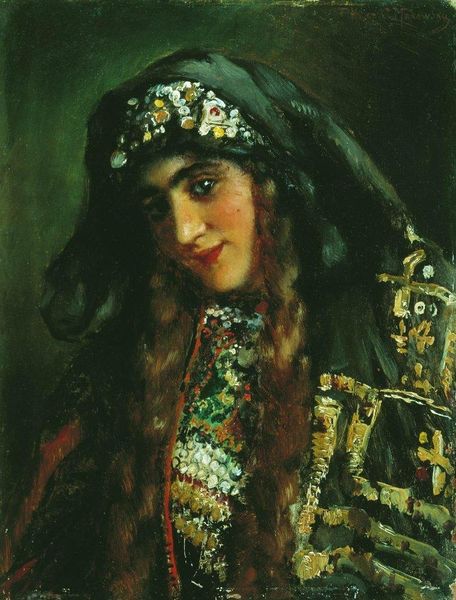
oil-paint
#
portrait
#
impressionism
#
oil-paint
#
oil painting
#
orientalism
#
realism
Copyright: Public domain
Curator: Here we see Vasily Polenov’s 1875 oil on canvas, "Odalisque." The painting is often seen as an example of Orientalism, a popular style at the time. Editor: My first impression is a certain… heaviness. The composition feels dense, almost claustrophobic, despite the supposedly exotic setting. Curator: Orientalism, as a movement, involved Western artists depicting "the East," often filtered through colonial perspectives. Polenov’s choice of subject certainly aligns with this trend. The hookah, the jewelry, the pose—they all reinforce a specific image of Eastern culture, probably idealized for Western viewers. Editor: Yes, the symbols are clear enough, but I am thinking more about form here. Notice how Polenov uses short, broken brushstrokes to render the textures—the rug, the clothes, even the skin. There's no smooth, classical polish. Instead, it has an almost impressionistic quality, despite being labelled more "realist". The subdued palette adds to this sense of texture and mood. Curator: Indeed. I find myself reflecting on how the representation of the subject of ‘Odalisque’ speaks to the complicated relationship between Russia and its oriental neighbours in the 19th Century. Russia, though European, also held imperial ambitions in the East, especially towards the Ottoman Empire and the Central Asian Khanates. Editor: I see the formal tension between those short brushstrokes—creating texture, dynamism—and the relatively static pose of the model, who appears disengaged, even melancholic. Curator: The ‘Odalisque’ could be interpreted as an embodiment of this complicated dynamic: exoticised, objectified, and passively beautiful but potentially imbued with resistance. The image reflects the politics and assumptions of its time. Editor: Ultimately, the success of "Odalisque" may stem from how its very formal construction – color, light, brushstroke – creates an uncanny kind of beauty, tinged with a sense of melancholy. We are left with that feeling, no matter what reading of politics we employ.
Comments
No comments
Be the first to comment and join the conversation on the ultimate creative platform.
